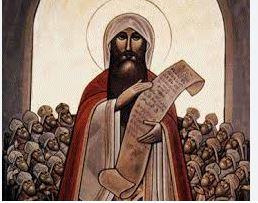Valentinian Gnosis

Valentinian Gnosis is a specific form of Gnosticism developed by Valentinus and his school in the 2nd century. This form of Gnosticism represents a particularly complex and systematic interpretation of the Christian faith, combining elements from Greek philosophy, Jewish mysticism, and early Christian theology.
Basic Principles of Valentinian Gnosis:
The Supreme Principle – the Unknown Father (The God Above All):
In Valentinianism, the highest divine reality is referred to as the "Unknown Father," understood as the absolute, unmanifest, and unlimited principle. He is the origin of everything, but beyond all names, concepts, and terms. This "Unknown Father" is the immeasurable principle of divine unity.
He is transcendent and beyond all comprehension. Everything that exists emanates from this supreme God, but this God remains essentially hidden from human understanding.
Emanations and the Creation of the World:
Valentinus taught that the Unknown Father produced a series of emanations, understood as a series of divine principles emanating from the highest divine source. These emanations represent the unfolding of the divine world order and the relationship between the supreme God and the created world.
One of the first and most important of these emanations is Sophie (Wisdom), considered a feminine principle and playing a central role in Valentinian cosmology. Sophie is described as divine Wisdom, who, through her own divine nature, brought forth the material world, but this creation was imperfect. In some Gnostic systems, including Valentinianism, Sophie is seen as the cause of the Demiurge (the "creator" of the material world), who does not possess the highest divine perfection.
The Demiurge - Creator of the Material World:
In Valentinian Gnosis, the Demiurge is the creator of the material world. He is often described as a lower divine entity, emerging from the emanations of divine wisdom, but not embodying the absolute divinity of the Unknown Father.
The Demiurge is not portrayed as evil, as is the case in some other Gnostic systems, but as a kind of imperfect creator who created the material world, yet without knowledge of the higher, divine origin. This renders the material world flawed and incomplete.
The Fall and the Material World:
The world as we experience it is a mistake of the divine order. This "miscarriage" of divine creation is not the true destination for the soul. In the Gnostic conception, the material world is a prison for the soul, which has lost itself within it and is cut off from divine truth.
In Valentinianism, the soul, in its original divine nature, is purer and holier than the material world, and its true home is the spiritual world or divine realm. Humanity's task is to rediscover its divine origins and return to true reality through gnosis—the recognition of truth.
Gnosis—The Path to Salvation:
The path to salvation in Valentinianism is the path of gnosis—the deep, intuitive knowledge of the true nature of self and the world. Gnosis is not merely intellectual knowledge, but a spiritual insight that frees the soul from the bondage of the material world.
In this tradition, Jesus Christ is viewed as the Savior who proclaims divine knowledge (gnosis) and shows humanity the path to liberation from the material world and a return to the divine source.
Christ as Savior and Revealer:
For Valentinus and his followers, Jesus Christ is the divine revealer who imparts true knowledge of divine reality to humanity. Christ is portrayed as the mediator between the earthly, material world and the spiritual world.
Christ teaches not only moral or ethical principles, but above all, how to recognize the true divine nature. Through his revelation, people can be freed from ignorance (considered the greatest obstacle to salvation) and attain a higher, more divine knowledge.
Important features of Valentinian Gnosis:
The cosmic hierarchy and divine emanations:
In Valentinianism, there is a complex hierarchy of divine emanations emerging from the highest principle (the "Unknown Father"). These emanations are organized in pairs—male and female principles—and they reflect
reflect the harmonious interplay of divine wisdom and creative energy.
The Role of Sophie (Wisdom):
Sophie is a central figure in Valentinian cosmology. She is the embodiment of divine wisdom and one of the first emanations of the Supreme Father. Her "fall"—the emergence of the Demiurge and the material world—is viewed as a tragic but necessary development that paves the way for the soul's return to the divine source.
Salvation through Knowledge (Gnosis):
Gnosis is the only path to salvation. It means recognizing the true nature of the world, understanding the divine origin of the self, and transcending material bonds to return to unity with the highest divine principle. It is a spiritual realization imparted by Gnostic teachings and practices.
Important Writings and Sources:
The teachings of Valentinianism are primarily recorded in the writings of Irenaeus of Lyons in his work "Adversus Haereses" (Against Heresies), as he rejected Gnostic doctrine as heresy.
Some Valentinian writings have been discovered in the Nag Hammadi writings, particularly in texts such as the Gospel of Truth, the Gospel of Philip, and the Gospel of Mary. These writings provide valuable insights into Gnostic doctrine and the Valentinian interpretation of Christianity.
Summary:
Valentinian Gnosis represents a profound and systematic form of Gnosticism that views the divine order as a series of emanations, with the ultimate reality lying beyond the material world. Salvation is achieved through gnosis—the deep, spiritual knowledge of the true nature of self and the universe. Valentinus saw Christ as the Savior who brought divine knowledge and showed the way to liberation from the illusion of the material world.

